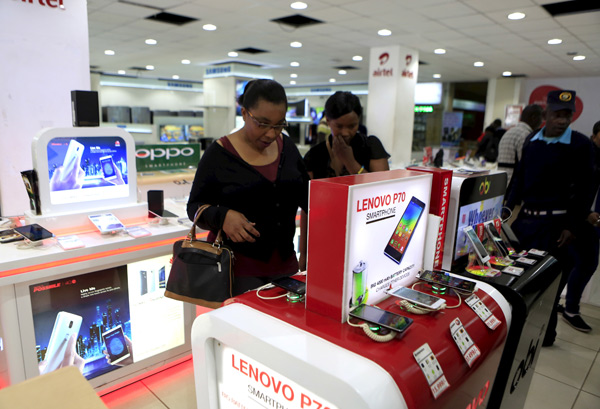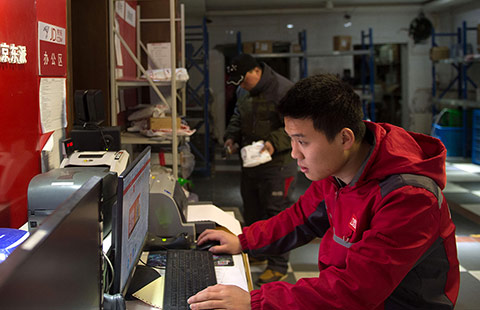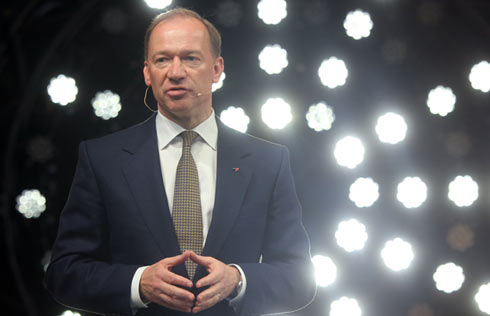A smartphone evolution on the horizon
 |
|
Consumers check out smartphones of Chinese brand Lenovo at a shop in Nairobi, Kenya. [Photo / Agencies] |
Africa, with a population second only to that of the Asia-Pacific region, is ready for the smartphone evolution that will bring ubiquitous internet access.
Nearly half of the 1.17 billion-strong African population had mobile phone plans by the end of 2015, making up 6 percent of the global mobile revenue, according to the latest data from GSM Association, an organization of global mobile operators.
The report, released in November in Tanzania, showed that this is a 70 percent increase from just five years ago. More importantly, smartphone sales now account for 23 percent of the mobile phone market.
"Africa is the next big potential battleground for mobile phone vendors in coming years. As 4G becomes available in more African counties, the demand for smartphones will grow," Tarun Pathak, senior analyst at Counterpoint Research, said.
According to him, Africa, with feature phones included, is now a bigger mobile phone market than the US, and it will surpass Europe in next few years, as the local telecoms infrastructure improves.
The GSM Association also predicts the spectacular growth in mobile demand should give rise to 730 million individual African subscribers by 2020.
The trend is not lost on the minds of senior executives. Chinese companies have extended their presence to the African continent, in the hope of establishing a beachhead.
Oppo Communications Corp cracked the market in 2015, with an initial focus on North Africa where people generally have higher incomes than in other parts of the continent. Huawei Technologies Co Ltd has opened offices there, and handsets made by relatively new players like Xiaomi Corp are also available in the continent now.
Wambui Monicah, a mobile phone retailer in Kenya, said he is now selling Chinese brands including Tecno, Oppo and Lenovo.
"I expect more Chinese brands to enter the Kenyan and African markets. There are so many opportunities," he added.
But still, the market is dominated by low-end gadgets. In the third quarter of 2016, the African market grew by 6 percent year-on-year, mostly driven by the rising demand for feature phones rather than smartphones, data from Counterpoint suggest.
Xiang Ligang, a smartphone expert and the chief executive of telecom industry website cctime.com, said the unstable political conditions in some African states and low incomes are still major obstacles.
Yu Lan, a translator who has been working for a Chinese construction firm in Angola, a western African country, for three years, said local brands are still preferred among Angolan people.
"But I have noticed an increasing number of them are embracing Huawei and Xiaomi handsets," she added.

















